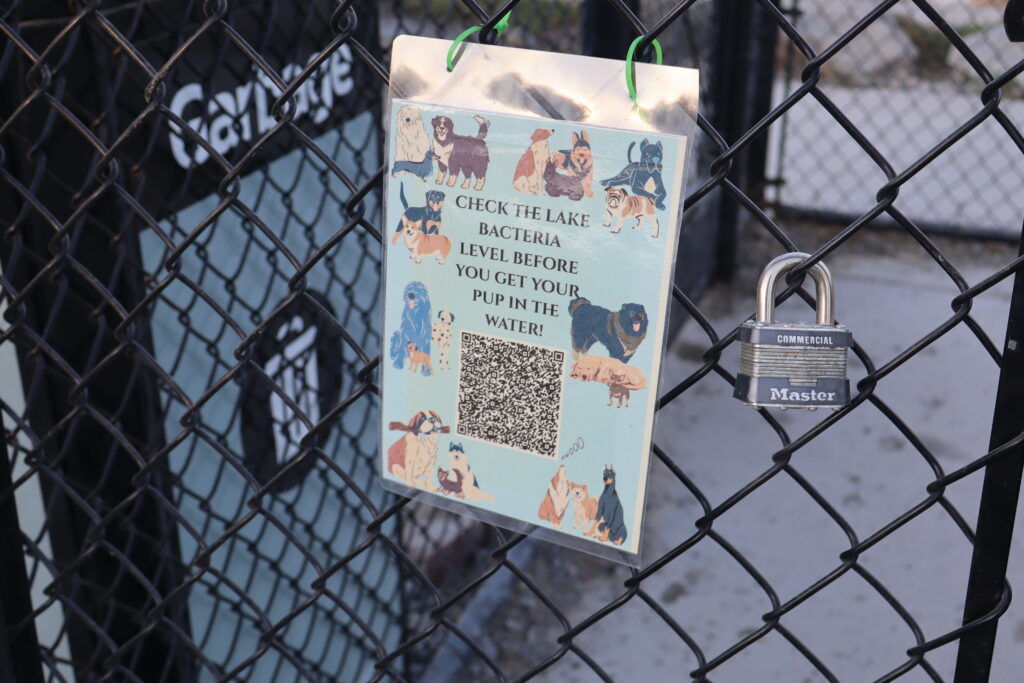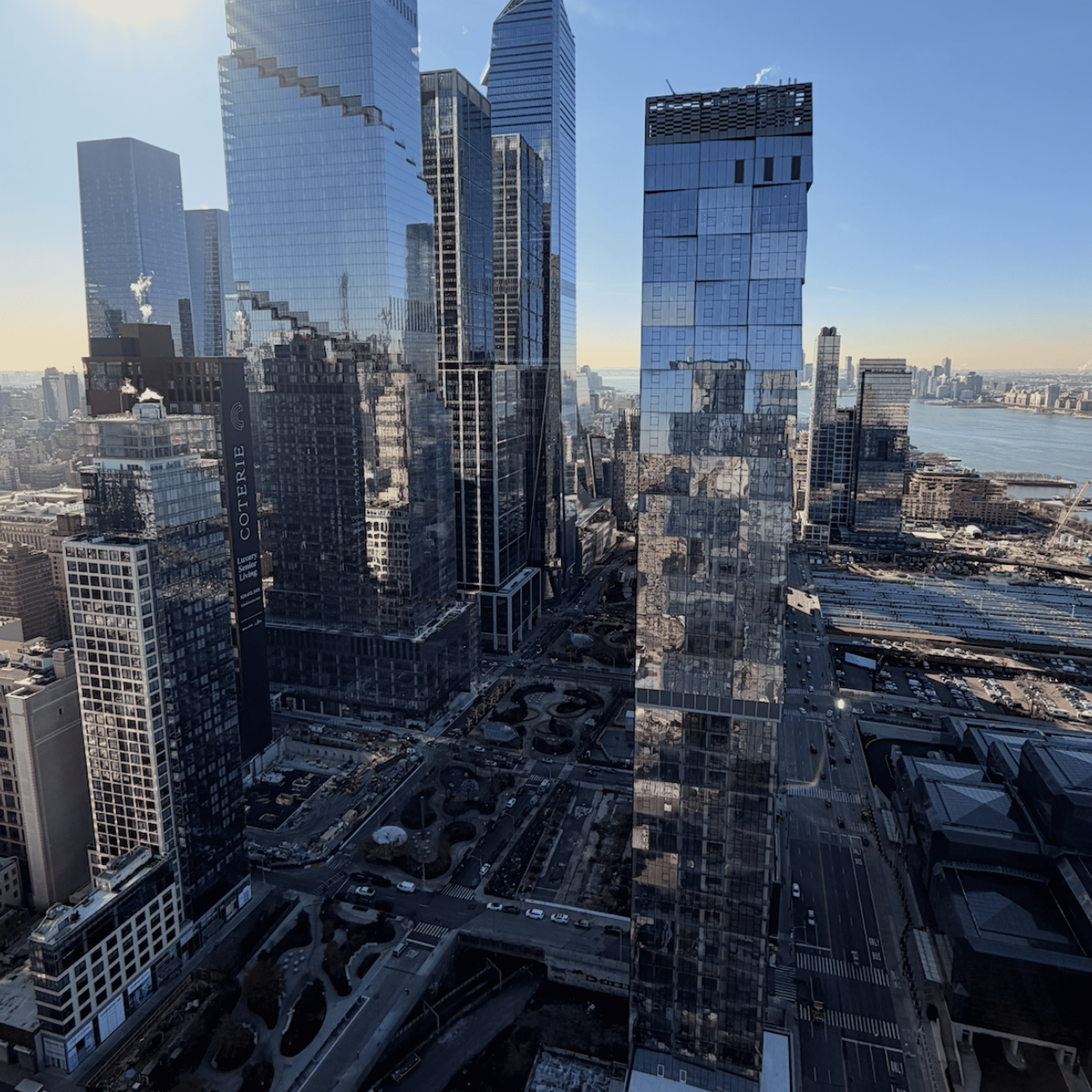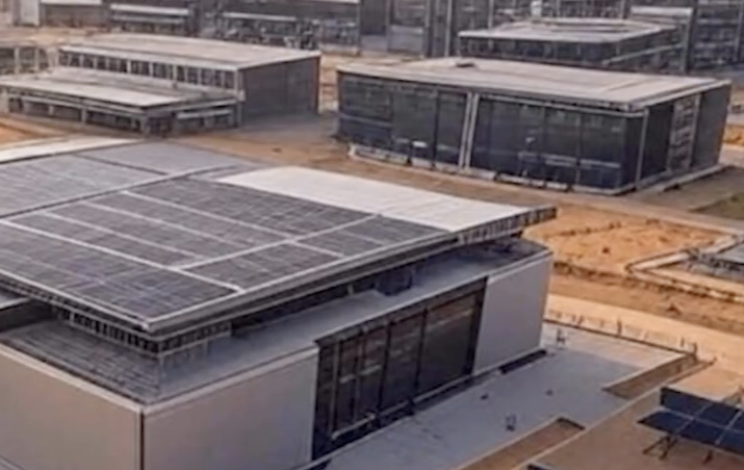(SEATTLE, Wash.) — Eight of nine Seattle swimming beaches were found to have water conditions unsafe for people and pets at least once since April, according to data collected through Sept. 22 by King County Public Health.
With each failed water test, Seattle Parks and Recreation warned residents on its Instagram account to stay out of the water to prevent getting sick.
Between April and September, the posts recorded 13 occurrences of elevated bacteria levels, one sewage overflow, and the second toxic algae bloom of the season at Green Lake Park. During the same six-month period in 2024, beachgoers witnessed unsafe conditions at at least seven of the nine beaches, and saw 17 of these types of posts.
Some Seattle beachgoers have expressed frustration with the current notification methods for beach conditions, and the likelihood of swimmers entering the water regardless of Instagram posts, web alerts, and physical warning signs or QR codes at parks. For example, despite all three of these methods being present during the Green Lake Park toxic algae bloom, multiple swimmers and animals could be found in the water on a recent 80-degree afternoon.
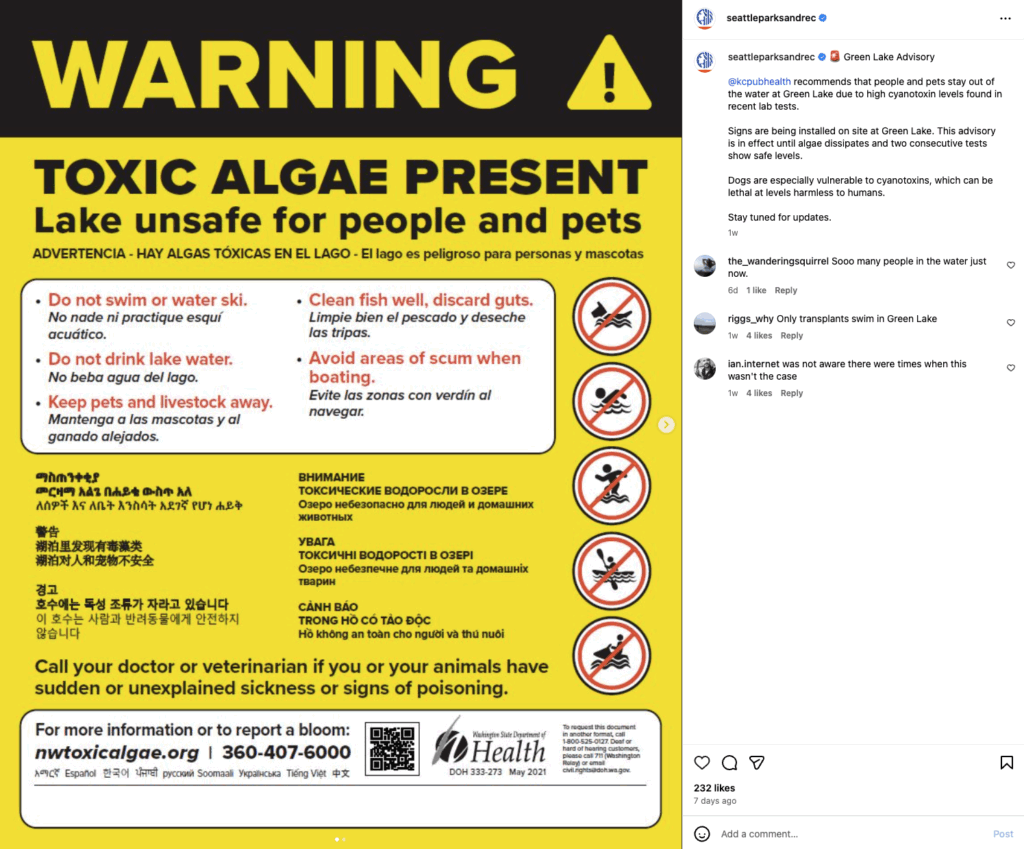
A Sept 12 Instagram post alerts residents to the presence of toxic algae. [Credit: Seattle Parks and Recreation]
While unsafe water conditions seem more common, the post prevalence is reportedly due to a change in how scientists collect water quality data, according to official insights from Seattle & King County Public Health staff. Prior to 2023, multiple water tests were required to notify the public if beach water was unsafe, and multiple tests were required again to share when it was clear. Once that criteria was updated to measure water quality in near real-time, notifications on openings and closures began to appear more consistently.
“It means that we issue more frequent beach openings and closures, and that the beach closures last for a shorter duration of time,” Sharon Bogan, a communications specialist at King County Public Health, told The Click.
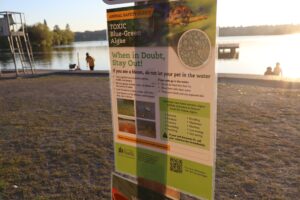
A sign reading “When in Doubt, Stay Out!” posted at Green Lake Park warns visitors of toxic algae during a recent bloom. [Credit: Abbey O’Brien]
“It’s easy to find a healthy beach!” Daniel Nidzgorski, Ecologist at King County, shared. “Even if it seems like a lot of beaches are closed, go to our website and you’ll see many, many more beaches that have low bacteria and good water quality that week.”
